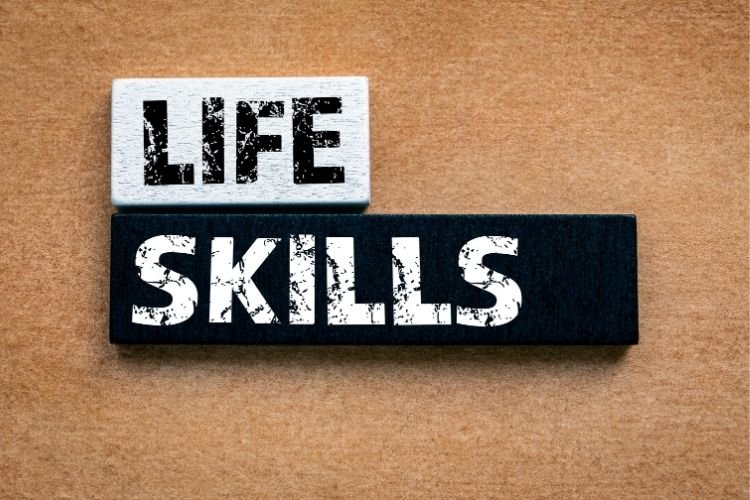The Indian education system has seen a significant transformation in recent years with the implementation of the National Education Policy (NEP) 2020. Central to this transformation is the National Curriculum Framework 2022, a cornerstone of the NEP. In this blog, we will understand the details of this framework, what it means for our education system, and how it is created to revolutionize the way we approach teaching and learning in India.
Understanding the National Curriculum Framework

The National Curriculum Framework (NCF) 2020 is a landmark document that outlines a new vision for Indian education. NCF 2020 is a landmark document that outlines a new vision for Indian education. It is the first major revision of the NCF in over two decades, and it reflects the significant changes that have taken place in Indian society and the global economy since then.
The National Education Policy 2020 (NEP 2020) led to a revised National Curriculum Framework in 2022, which addresses the evolving needs of 21st-century students.. The NCF 2022 is a response to the changing global landscape, offering an innovative approach to education, focused on promoting creativity, critical thinking, and holistic development.
The NCF 2022 emphasizes holistic development as its primary goal. It recognizes the importance of nurturing not only cognitive skills but also socio-emotional and practical life skills. This shift in perspective encourages students to be lifelong learners, capable of adapting to an ever-changing world.
Objectives of National Curriculum Framework
- Holistic development: The NCF 2020 emphasizes the importance of holistic development, which includes not only academic achievement but also social, emotional, and physical well-being.
- Equity and inclusion: The NCF 2020 is committed to equity and inclusion, and it calls for an education system that provides all students with the opportunity to succeed, regardless of their background or circumstances.
- Critical thinking and creativity: The NCF 2020 places a strong emphasis on critical thinking and creativity, and it calls for an education system that helps students to develop these essential skills.
- Lifelong learning: The NCF 2020 recognizes that learning is a lifelong process, and it calls for an education system that prepares students to learn throughout their lives.
A Multidisciplinary Approach
The NCF 2022 advocates for a multidisciplinary approach to education, breaking down the traditional barriers between subjects. This approach allows students to explore a variety of fields, fostering a well-rounded perspective and igniting their curiosity.
One of the significant changes that the NCF 2022 introduces is the removal of rigid subject choices. Schools have replaced the fixed set of disciplines with a flexible curriculum that empowers students to choose subjects based on their interests.
In the Indian education system, which often places an excessive emphasis on rote learning and standardized tests, the multidisciplinary approach is a breath of fresh air. It encourages creativity, critical thinking, and problem-solving, all of which are essential skills for success in the 21st century.
Inclusive Education
Inclusivity is at the heart of the NCF 2022. The framework envisions an education system where every child, regardless of their background, abilities, or disabilities, receives equal opportunities for learning. It recognizes that diversity is not a barrier but an asset to the educational landscape.
Also Read: What is Inclusive Education?
To Ensure Inclusivity, the NCF 2022 Promotes:
- Flexibility in Learning: A flexible approach to education that accommodates the individual learning needs of students.
- Remedial and Supportive Teaching: The framework encourages remedial and supportive teaching methods to help students who might need extra assistance to keep up with their peers.
- Specialized Education: Specialized education programs are designed to cater to the unique needs of students with disabilities.
Inclusive education is a powerful tool for societal progress, as it not only addresses inequalities but also enriches the learning environment with diverse perspectives and experiences.
Promoting Life Skills

The NCF 2022 places a strong emphasis on the acquisition of life skills. These skills, which extend beyond the confines of traditional subjects, are vital for personal growth and future success.
Some of the key life skills emphasized in the framework include:
- Critical Thinking: Encouraging students to think critically, analyze information, and make informed decisions.
- Communication Skills: Fostering effective communication through various mediums, such as writing, speaking, and digital communication.
- Problem-Solving: Equipping students with the ability to identify and solve real-world problems.
- Decision-Making: Empowering students to make responsible and ethical decisions in their personal and academic lives.
These life skills are crucial in preparing students for the complex challenges they will face in the future. They enable them to adapt, innovate, and thrive in various contexts, be it in their careers or personal lives.
Physical Education and Well-being
The NCF 2022 recognizes the significance of physical education and overall well-being in the lives of students. A healthy body and mind complement each other, and the framework encourages physical fitness and mental wellness.
Physical education is no longer considered an optional extracurricular activity. It is now an integral part of the curriculum, ensuring that students have access to opportunities for physical development. This approach not only contributes to better physical health but also enhances mental well-being.
The NCF 2022 also acknowledges the importance of mental health and emotional well-being.
Schools must create supportive and nurturing environments where students can express themselves and seek help.
This approach helps in developing a generation that is not only academically competent but also mentally resilient.
Conclusion
The National Curriculum Framework 2022 is a essential step in the transformation of the Indian education system. These changes have the potential to revolutionize the way we educate our children. It prepares them for the challenges of the 21st century.
Also Read: What is Collaborative Learning and What is its Importance?








